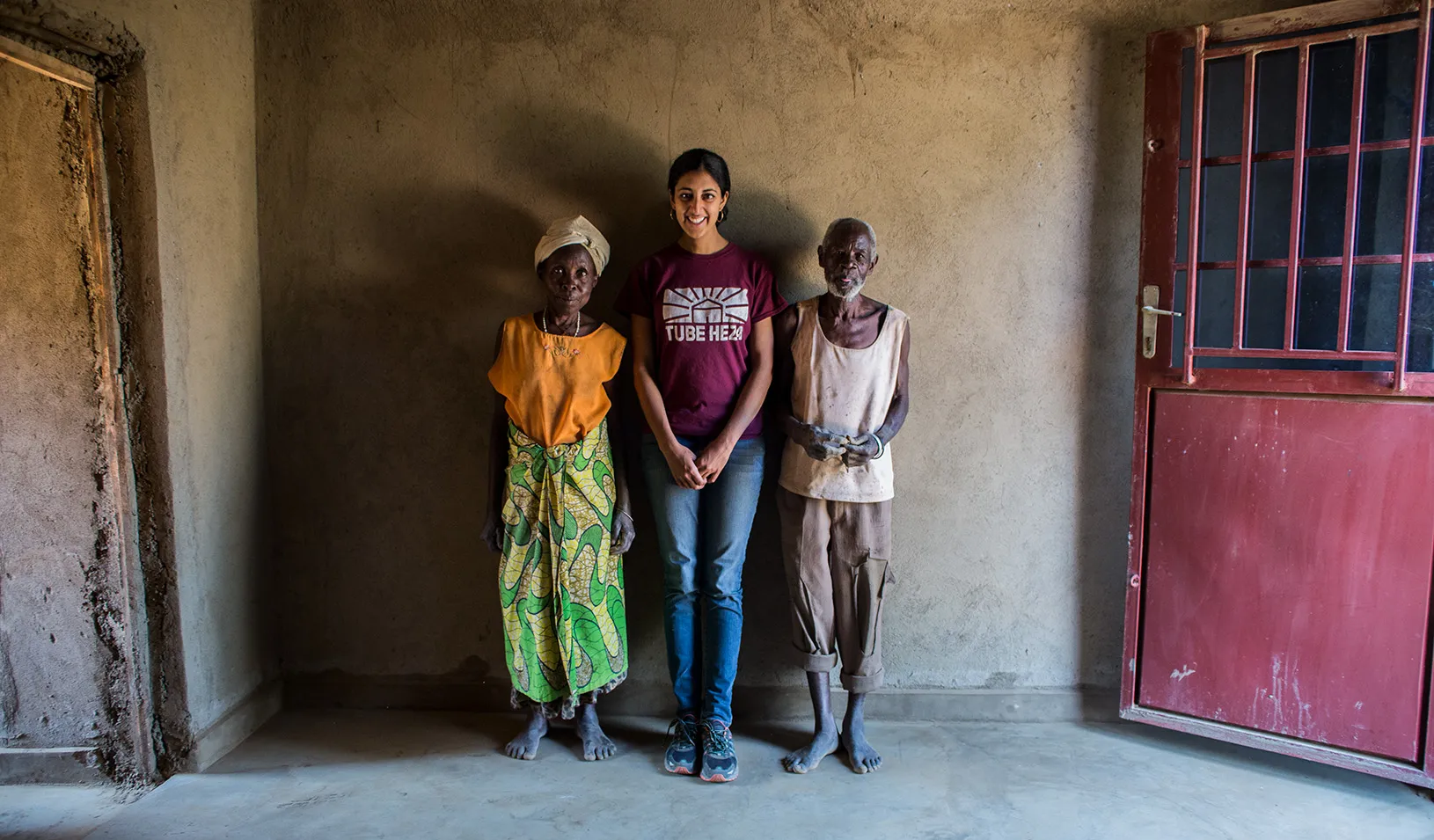
Gayatri Datar, MBA ’14, center, of EarthEnable, one of many social impact ventures supported by the SIF program. | Jacques Nkinzingabo
Four thousand teachers trained in West Africa. Over $5.4 million in flexible funding for disability services for neurodiverse adults. Ten thousand trees planted.
These are just a few of the accomplishments that the Stanford Impact Founder (SIF) Fellows, provided early funding through an eponymous program of the Stanford Graduate School of Business’s Center for Social Innovation, have achieved in the offering’s first 15 years. Between 2009 and 2022, the program supported 30 fellows as they created organizations dedicated to overcoming barriers to social and environmental progress.
“SIF is really an investment in a person — in their leadership trajectory and in the values they want to bring to life through their work,” says Neil Malhotra, The Edith M. Cornell Professor of Political Economy at Stanford GSB and the faculty director of the Center for Social Innovation. “SIF supports founders very early in their venture’s development. Occasionally, their idea unfolds just as planned, but more often, SIF Fellows, like all founders, have to navigate twists, turns, and pivots to figure out their value proposition and cement the traction and revenues needed to thrive.”
Current SIF fellowship benefits include a stipend of $110,000 to explore a social or environmental venture, year-long personalized coaching, Stanford Venture Studio resident program membership, and participation in a community of impact entrepreneur peers. Fellowship recipients from the past 15 years who recently completed a survey about the program’s impact said it was critical to launching their ventures.
“[SIF was] crucial in giving us both visibility and financial stability, especially in our first year out of GSB, where risk-taking feels especially difficult,” says Sarah Alexander, MBA ’22, a 2022 SIF Fellow who founded Patch Caregiving, a childcare solution for frontline workers including hourly employees. “I learned about myself as a founder, when and how to ask for help, and how to work more effectively as a team with my cofounder.”
Fellows singled out the coaching they received as a key tool to help them develop as leaders.
“The personalized coaching was huge. It helped us through big changes, notably our CEO transition,” says John Foye, MBA ’22, a 2022 SIF Fellow who founded Working Trees, which develops mobile sensing technology to improve transparency and scientific rigor in biomass accounting. “[SIF] made us comfortable to take a big swing. Without that, we wouldn’t have landed contracts, extra grants, built the team, and ultimately ended up with a business with a decent time horizon to figure things out.”
SIF founders are a diverse group, working in Brazil, Sri Lanka, Spain, Pakistan, Jordan, India, Ghana, Rwanda, Kenya, Nigeria, Norway, and multiple locations in the United States. They have tackled a similarly diverse set of issues, with education inequality leading the list and climate change becoming an increasingly common focus.
2020 SIF Fellow Dr. Dare Ladejobi, MS ’20, founded Lagos, Nigeria-based Plateaumed, which offers simplified, affordable healthcare solutions such as electronic medical record systems and hospital management information systems.
“SIF got us up and running: Having SIF funding and support helped open doors to healthcare regulators and provided a path to our initial impact during Covid,” Ladejobi says.
In total, SIF ventures have had positive impacts on 7.3 million people worldwide. To achieve this, fellows have built on the initial $2.6 million in SIF fellowship funding, raising six times the initial amount in the first year of their ventures and a cumulative $164.6 million in combined non-dilutive and equity funding as of January 2024.
“The funding was catalytic,” says Shawon Jackson, MBA ’21, a 2021 SIF Fellow who founded Vocal Justice, a U.S. nonprofit that inspires and prepares Black and Brown youth to become leaders for social change. “It gave me space to focus on building my team and refining our programming the first year. I brought on my first full-time hires, and together, we revamped our core curriculum for young people and enhanced our offerings for teachers.”
The SIF program has evolved since its founding. For the first ten years, the program was available only for graduating students seeking to launch a nonprofit venture. In 2020, it expanded to include high-impact for-profit business models. And in 2023, as part of a collaboration between Stanford GSB and the Stanford Doerr School of Sustainability, a new environmental sustainability track of the SIF Fellowship (SIF-Eco) was launched. In 2023, four fellowships were awarded on the SIF-Social Entrepreneurship track and four on the SIF-Ecopreneurship track. Those fellows are still in the midst of their fellowship year, thus 2023 Fellows were not included in the survey.
As their careers have progressed, SIF Fellows have remained committed to having a positive impact: All the fellows from the past 15 years said their current role contributes to social or environmental impact.
“The SIF year is a learning opportunity unlike any other and puts the GSB’s motto — Change Lives, Change Organizations, Change the World — into action,” Malhotra says.
Gayatri Datar, MBA ’14: A Down-to-Earth Route to Healthier Floors in Rwanda
Changemaker: Reducing Emissions, Fighting Climate Change
Jenna Nicholas, MBA ’17: Investing the Effort to Understand Marginalized Communities’ Funding Needs
‘Aulani Wilhelm, MS ’14: Raising a Glass to More Clean Water, Less Plastic Waste
For media inquiries, visit the Newsroom.







